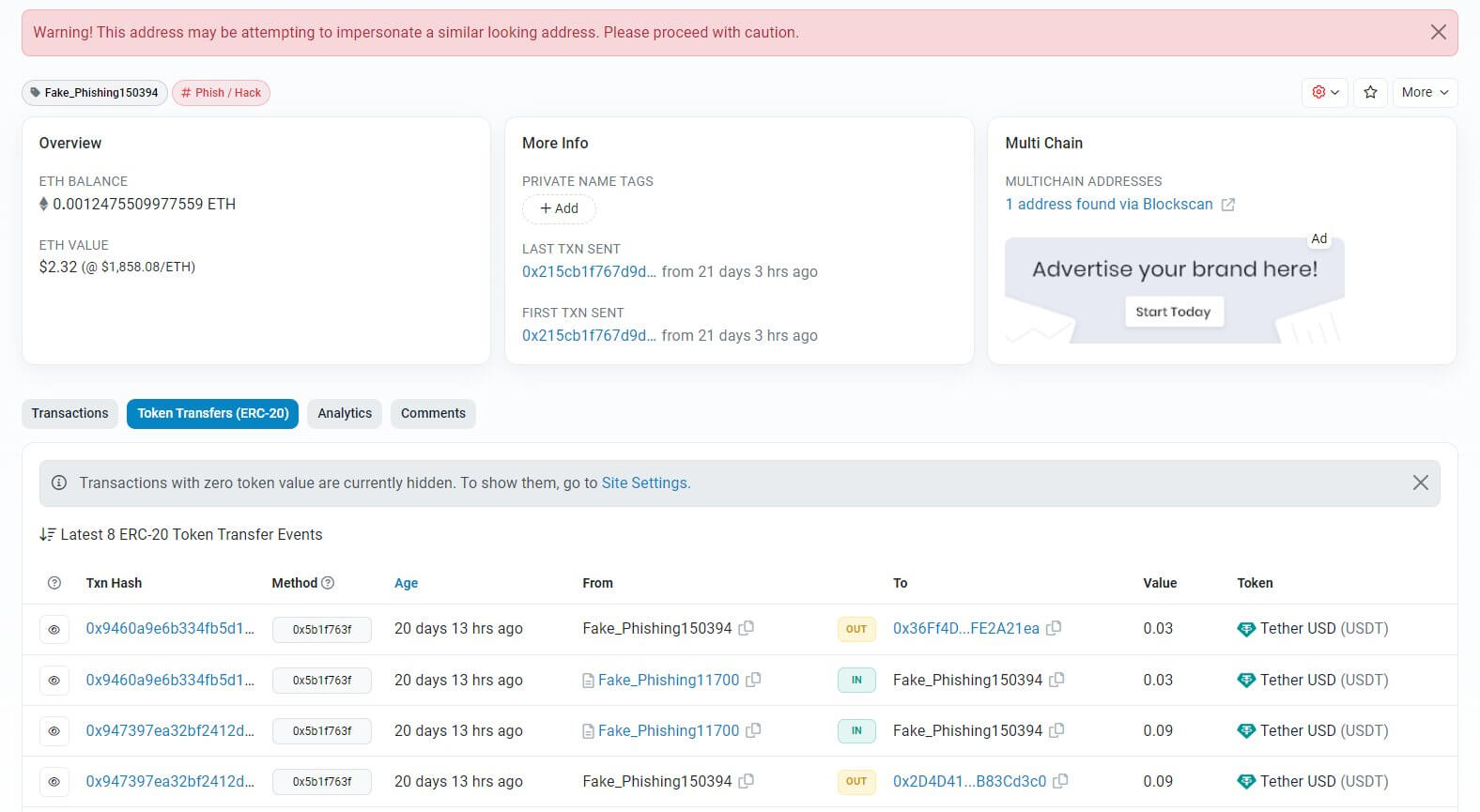 Ethereum block explorer Etherscan adds anti-scam feature
Ethereum block explorer Etherscan adds anti-scam feature Ethereum block explorer Etherscan adds anti-scam feature
The site will hide zero-value transfers to protect against address poisoning attacks.

Cover art/illustration via CryptoSlate. Image includes combined content which may include AI-generated content.
Etherscan, a block explorer for the Ethereum blockchain, announced on April 10 a feature that is designed to prevent users from falling victim to scams.
Etherscan to hide zero-value transfers
Etherscan said that, in order to protect users from scams called address poisoning attacks, it will hide zero-value token transfers by default.
While the site previously greyed out zero-value transactions, those transactions are now hidden entirely under the new feature, as seen below.

During an address poisoning attack, a scammer creates a “spoofed” address that is nearly identical to one that their target has previously transacted with. The scammer then sends zero-value transfers from the spoofed address to the target’s address. The target may confuse the two similar addresses and direct funds to the spoofed address by mistake.
Because this approach depends on user error and is a type of phishing, hiding transactions that contain no value can make the scam far less alluring to its victims.
Etherscan noted that preventing scams in a neutral manner is “an infinite cat-and-mouse game” and said that it recognized the value of “uncensored” blockchain records. As such, users will be able to toggle the option in settings, it said.
Etherscan already includes other anti-scam features: for example, it flags addresses that are known to be involved in scams and hacks.
Zero-value attacks increasingly common
The type of scam in question has gained wider attention in the crypto industry. Two blockchain firms, X-explore and WuBlockchain, estimated that zero-value transfer phishing and related attacks have resulted in up to $32 million in thefts on Ethereum.
Coinbase, meanwhile, suggested that this type of attack originated in November 2022 and had led to $19 million of thefts on various platforms by February 2023.
The Ethereum-focused wallet Metamask also warned of address poisoning scams in January 2023 and provided users with ways to protect themselves.





















































































